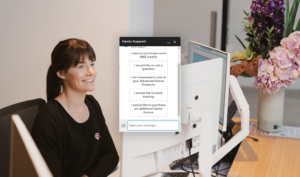Another day in our brave new world, and another decision to make.
Whether you choose to open a private practice or not, this decision is one we know will impact you – both personally and professionally.
So, settle into a comfy chair, put your feet up and let us guide you through all of the considerations of opening a private practice.
Playing the long game
Building a great practice is like a very long game of Tetris; from accounting, staffing and billing to outfitting and, of course, choosing the right practice management software – your success requires the various pieces of the practice to fit together in just the right ways.
We work with specialists like you every day and we’ve been there and done that more than a few times over. So here are some recommendations we’ve collated to help you get off on the right foot.
Research and plan
Chat to colleagues in your professional networks – a wide range of perspectives from other specialists, practice managers, administration staff, and nurses should help you get a feel for the options.
Consider establishing more formal mentorships or fellowships with practitioners in your field and business relationships with specialist advisers. A mentor may help you choose the right pathways and give you the confidence you need to forge ahead.
Establish a strong network of GPs, whose referrals will generate much of your business.
A foundation of strong relationships and strategic objectives to steer you in the right direction will reduce uncertainty and stress and ensure your first experiences in private practice are positive ones.

The right path, for you
So, you’ve weighed the pro’s and con’s and decided private practice is a good fit for you.
What now?
There are a few options to consider:
Go out on your own – find the right practice space, fit it out, hire and train staff, implement IT systems, processes, hardware and software.
Go out on your own (with virtual support) – find the right practice space, fit it out, implement IT systems, processes, hardware and software and employ virtual practice management resources to run your practice.
Rent a room in an existing practice or sessional suites – allows you flexibility to continue other medical work, such as working in the public health system, while building your business. If you remain an independent provider but share rooms, you still get to enjoy clinical autonomy.
Join a collective of specialists – to take advantage of the benefits of shared resources – such as staffing, IT and rent – which reduces your costs. Just remember to put agreements in place for managing clinical data, e.g. who does the patient data belong to if one of you wants to leave?
Want to learn more about getting your practice up and running? Check out our New to Private Practice Guide





